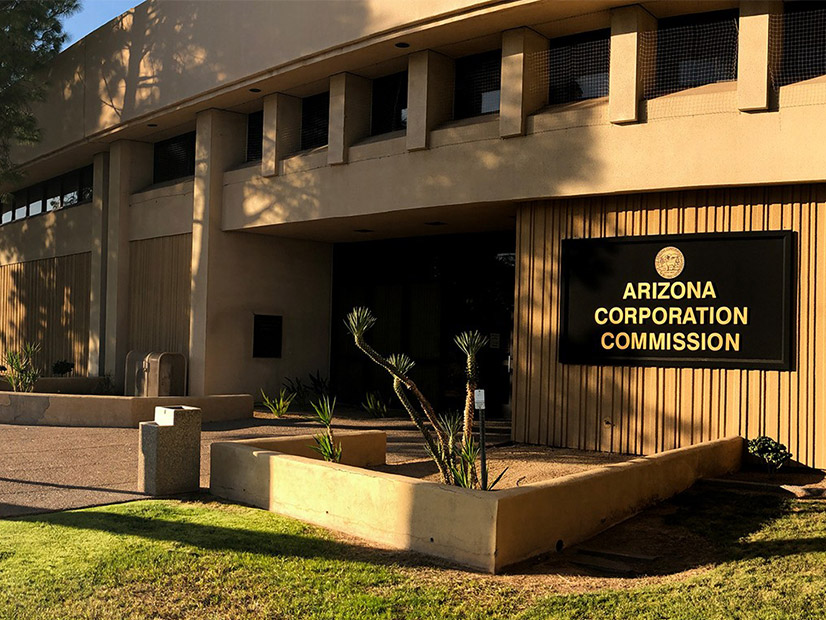The Arizona Corporation Commission on Wednesday voted to advance energy rules that would require the state’s electric utilities to cut carbon emissions 50% by 2032 and 100% by 2070.
In a 3-2 vote, Commissioners Jim O’Connor (R), Anna Tovar (D) and Sandra Kennedy (D) voted in favor of the rules. Chairwoman Lea Marquez Peterson and Commissioner Justin Olson, both Republicans, were opposed.
The carbon-reduction targets in the approved rules are less ambitious than those the commission considered earlier this month, which would have required electric utilities to reduce carbon emissions by 50% by 2032, 75% by 2040 and 100% by 2050. That proposal died due to lack of support.
Because the proposed energy rules were substantially amended, the revised rules will go through the formal rulemaking process. The comment period will open on July 9. A final vote is expected in the fall.
Tovar and O’Connor jointly proposed an amendment, which the commission adopted on Wednesday, giving utilities until 2070 to reach 100% carbon-free emissions. Interim standards include a 50% reduction by 2032, a 65% reduction by 2040, an 80% reduction by 2050, and a 95% reduction by 2060.
The rules also include requirements for energy efficiency and energy storage.
Sandy Bahr, chapter director for Sierra Club’s Grand Canyon Chapter, said the group was pleased that the energy rules are moving forward.
“Early action on reducing carbon emissions to address our climate crisis is critical,” Bahr said in a release. “These rules include an important carbon standard to reduce emissions 50% by 2032, as well as standards for energy efficiency and distributed storage that will help our state move forward on reducing emissions.”
Western Resource Advocates said in a release that the commission’s vote “sets (a) promising interim target but falls far short on overall climate action.”
“The 2070 date for reaching carbon-free electricity falls far short of meeting the timeframe that scientists tell us is needed to avoid the worst impacts of climate change,” said Adam Stafford, Western Resource Advocates’ senior staff attorney in Phoenix. “A more urgent timeline of no later than 2050 for eliminating the harmful fossil fuel emissions that cause climate change is of critical importance.”
The update to the state’s energy rules has been in the works for nearly three years.
But the rules appeared to be dead earlier this month, when Olson, Marquez Peterson and O’Connor voted to approve an amendment from Olson that made provisions of the rules voluntary rather than mandatory for utilities. Olson, joined by Tovar and Kennedy, then voted against the amended rules. (See Ariz. Regulators Kill Clean Energy Proposal.)
Following the May 5 defeat of the rules, Kennedy asked for a reconsideration.
Marquez Peterson has repeatedly expressed concerns that the proposed energy rules would give utilities a “blank check” that would increase costs for ratepayers.
“I find it ironic that stakeholders who have been hyper-critical of utilities in the past due to massive overbuilding, now seem to have no problem giving these same utilities a blank check to overbuild in the name of ‘clean energy,’ which will ultimately be paid for [by] Arizona families and businesses,” Marquez Peterson said in a May 12 letter filed in the energy rules’ docket.
Amendments to the rules that the commission adopted on Wednesday include adding a ratepayer impact measure test, changing portfolio options that utilities must include in their integrated resource plans, and adding the definition of “all source,” which includes supply- and demand-side resources. Tovar and O’Connor proposed those amendments.
Marquez Peterson proposed an amendment, which the commission adopted, to allow a utility to seek a fair return on investments made in demand-side resources, such as energy efficiency and demand response.





